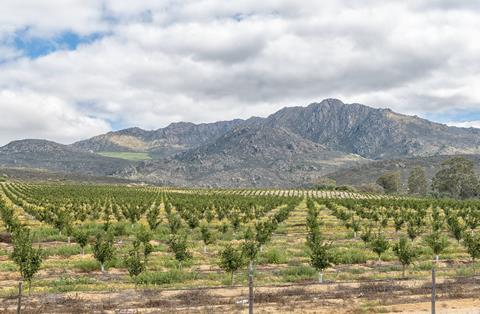CGA CEO says the new exemption is “great news” and calls for an extention to include the country’s mandarin exports
The Citrus Growers’ Association of Southern Africa (CGA) has welcomed the new US tariff exemptions, and the inclusion of oranges as a citrus category.

“Even though the 2025 season is over, the new exemption is great news for the 2026 season, which starts around April 2026,” said the CGA.
“The exemption once again makes South African oranges competitive in the US market, a market that holds opportunities for increased exports and local job creation.”
This season, which ended in early-August, saw South Africa ship 4.3mn 15kg cartons of oranges to the US.
“South Africa has been a partner to the US in citrus supply for many years,” noted Boitshoko Ntshabele, CEO of the CGA. “In the US domestic summer, when their own growers are out of season, we supply them with quality citrus. This keeps consumers in the category, ensuring stability and access to affordable imported fruit.”
The 30 per cent US tariffs on South African imports came into effect in August 2025, towards the end of the South Africa’s 2025 season. It, therefore, had a limited impact on citrus exports, especially because growers were able to increase and fast-track shipments to the US before the tariff deadline.
However, growers were “deeply concerned” about the impact on future seasons.
“There will be some big smiles on our farms this morning,” said Gerrit van der Merwe, chairperson of the CGA and citrus grower in Citrusdal in the Western Cape. “We have been deeply concerned about the future of our valley for many months.
“Supply steadiness is not a luxury, it is a vital hedge against volatility for the US citrus industry, and an example of how global trade benefits everyday US consumers. Citrus as a fresh, healthy product is also uniquely valuable. It helps keep Americans healthy.”
Ntshabele noted that mandarin (soft citrus) varieties are currently not exempt from tariffs.
“Our mandarins are popular in the US,” Ntshabele said. “The US should consider extending the current exemption to include mandarins and other citrus varieties, because they share similar market dynamics and supply chain vulnerabilities.
Applying tariffs to mandarins risks creating price spikes, supply shortages, and inflationary pressures.
“We hope the trade negotiations currently taking place between South Africa and the US will take the immense value of all South African citrus varieties to the US consumer into account,” Ntshabele noted.



